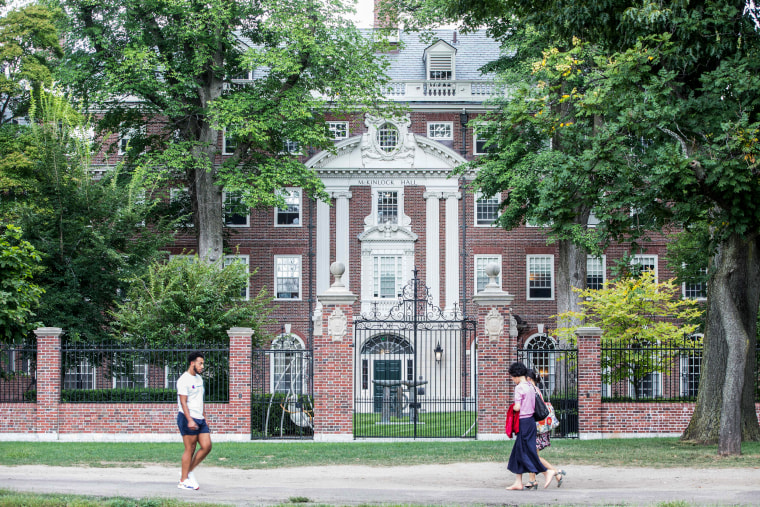Academics across the U.S. filed briefs this week to the Supreme Court in support of Harvard College and the University of North Carolina. The schools are at the center of two high-profile cases that pose a threat to affirmative action admission policies.
More than 1,240 historians and social scientists who study race and education, led by Asian American scholars, filed two briefs supporting the universities and their race-conscious admission practices, in response to a pair of lawsuits by the anti-affirmative action group Students for Fair Admissions (SFFA).
Led by Edward Blum, a conservative legal advocate who is white, SFFA has accused the two schools of discriminating against Asian Americans by putting them at a disadvantage and valuing Black and Latino students more highly instead.
The academics argue that the dissolution of race-conscious practices in admissions would harm Asian Americans and others and that affirmative action policies lead to a diversity in the student body that is beneficial to students of all backgrounds.
In the Harvard brief, the academics argued that SFFA’s case is grounded in racist stereotypes, citing the petitioner’s own assertion that Asian Americans are academically “substantially stronger” than other demographic groups and therefore “should be admitted at a higher rate.”
“That assertion fundamentally rests on a racial stereotype about Asian Americans as a so-called ‘model minority,’” the brief reads. “That stereotype advances the views that (1) Asian Americans are smarter and value education more than other groups and (2) other racial minorities do not value hard work and education.”
SFFA did not respond to request for comment.
The Harvard brief also states that the dissolution of race-conscious admissions would harm Asian Americans and ignore the diversity of experiences and degrees of power and privilege within the group.
“Research shows that advocating such views creates groundless fears of racial discrimination in college admissions that … inhibits identity development among Asian American students,” the brief reads.
The UNC brief similarly advocates race-conscious admissions, stating that added racial diversity is beneficial to all across the student body.
The academics join several others in filing briefs in support of the schools.
While Asian Americans have largely become the face of the anti-affirmative action movement, research shows that the group’s stance on the issue runs counter to their portrayal in the media.
An Asian American voter survey leading up to the elections in November found that almost 70 percent favored affirmative action programs “designed to help Black people, women, and other minorities get better access to higher education.”
The inconsistencies have prompted accusations that conservatives are using Asian Americans as a “wedge” to further their own interests.
“Such efforts hide the fact that most opponents of affirmative action are really trying to increase the number of Caucasian students at the expense of Black, Latino and Native American applicants," John C. Yang, president and executive director of civil rights nonprofit Asian Americans Advancing Justice | AAJC, previously told NBC Asian America.
CORRECTION (AUG. 8, 2022, 10 a.m. EST): A previous version of this article misstated Edward Blum’s professional status. He is a legal advocate, not a lawyer.
